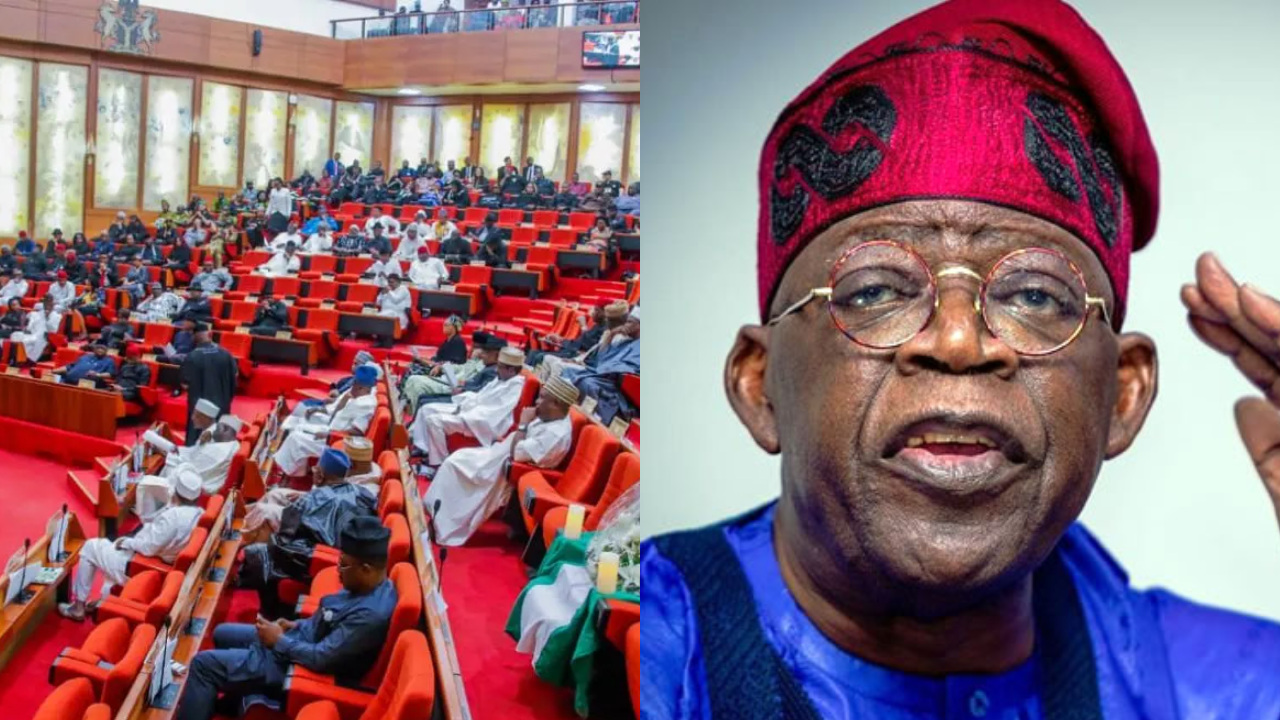Senate Approves Tinubu’s 2025-2027 Fiscal Plan With N9 Trillion Borrowing Proposal
Nigerian Senate Endorses 2025-2027 Fiscal Strategy Framework
PulseNets has learned that the Nigerian Senate has approved the 2025-2027 Medium Term Expenditure Framework (MTEF) and Fiscal Strategy Paper (FSP). This decision followed its presentation during a plenary session by Senator Sani Musa, Chairman of the Senate Committee on Finance.
The approved framework outlines the government’s fiscal strategy for the next three years, providing critical projections and expenditure plans to shape the 2025 national budget.
Key Highlights of the MTEF/FSP Approval
- Total Expenditure: ₦47.9 trillion for 2025.
- Borrowing Plan: ₦9.22 trillion, sourced domestically and internationally.
- Exchange Rate Assumption: ₦1,400 per US dollar.
- Oil Price Benchmark:
- $75 per barrel in 2025.
- $76.2 per barrel in 2026.
- $75.3 per barrel in 2027.
- Daily Oil Production Targets:
- 2.06 million barrels in 2025.
- 2.10 million barrels in 2026.
- 2.35 million barrels in 2027.
Concerns Over Rising Debt
PulseNets reported that the framework highlights a worrying trend: Nigeria’s escalating dependence on borrowing to finance its budgetary needs. Projections for the Central Bank of Nigeria’s (CBN) credit to the government over the three years are as follows:
- 2024: ₦38.7 trillion.
- 2025: ₦43.7 trillion (+₦5 trillion).
- 2026: ₦48.8 trillion (+₦5.2 trillion).
- 2027: ₦53.6 trillion.
As of September 2024, CBN credit had already reached ₦42 trillion, surpassing the year’s projection of ₦38 trillion. Analysts told PulseNets that the rapid growth of CBN credit—comprising advances and overdrafts to offset government revenue shortfalls—raises serious concerns about debt sustainability.
Also Read: Ex-Niger Delta Agitators Rejects Senate President Godswill Akpabio’s Impeachment Plan
Implications for Nigeria’s Fiscal Future
The Senate’s approval of the MTEF/FSP sets the groundwork for the 2025 national budget. However, stakeholders speaking to PulseNets stressed the pressing need to address Nigeria’s heavy borrowing. Many questioned the long-term feasibility of such fiscal policies and underscored the necessity of diversifying revenue streams, reducing reliance on loans, and fostering economic stability.













